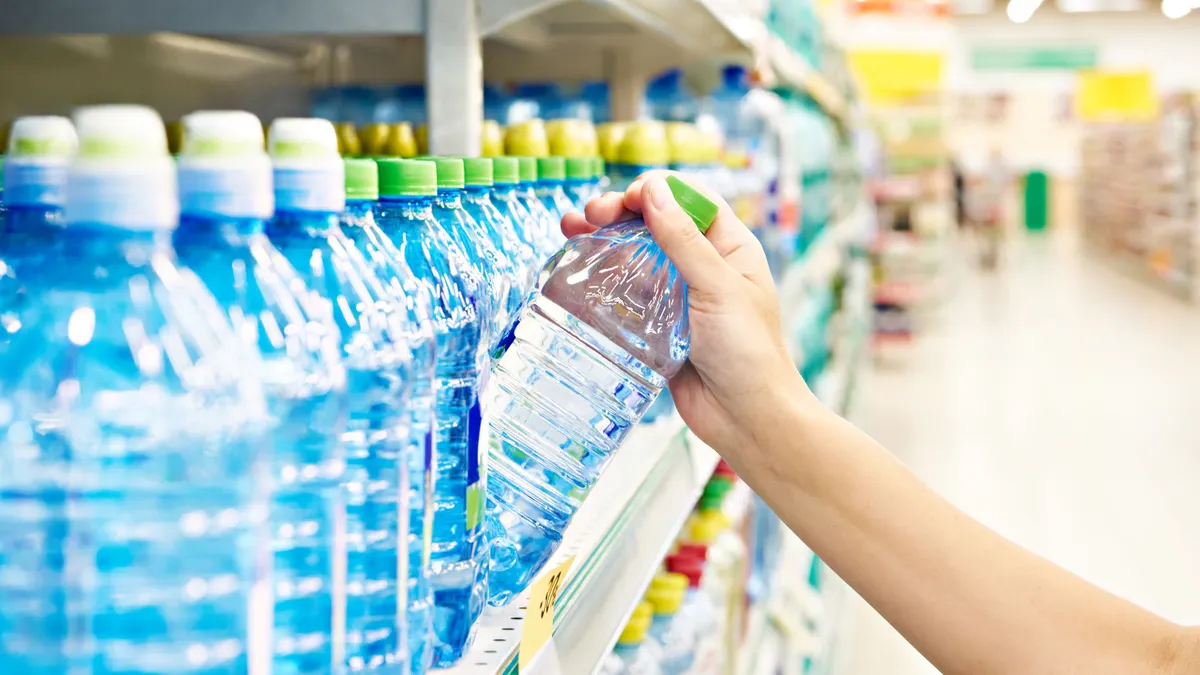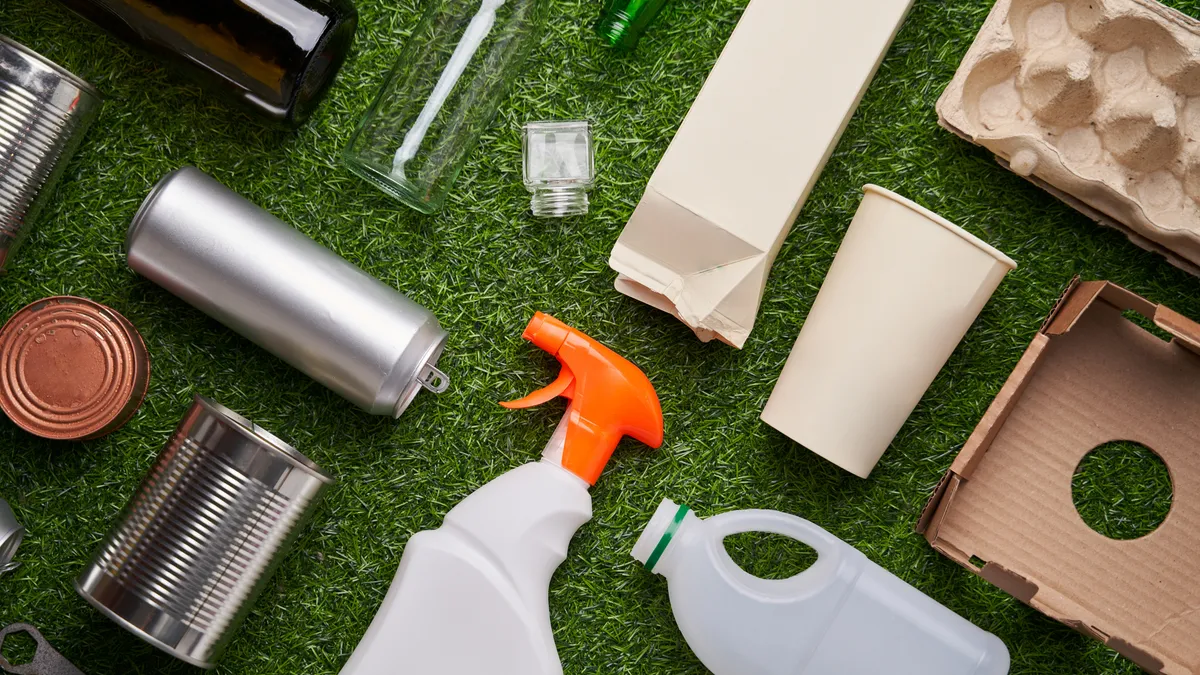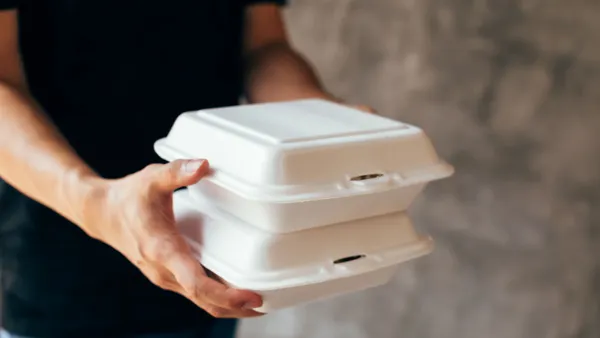Dive Brief:
- The Washington Department of Ecology last week announced a new round of fines related to a 2021 law that currently requires a minimum of 15% recycled content in plastic beverage containers. The law also covers recycled content in trash bags.
- The agency fined 23 plastic producers a combined $277,000, calculated based on each company’s 2024 sales in the state and how far off the businesses were from required thresholds. This is less than the initial round of fines issued to 35 companies last October, which totaled $416,554. In this latest round, Arizona Beverages USA and Ocean Spray Cranberries faced the largest fines, with each reportedly having no recycled plastic in their containers.
- “Several producers made applaudable gains last year increasing their recycled content in spite of not reaching the required minimum amount,” said Peter Lyon, solid waste program manager, in a statement.
Dive Insight:
There were some notable changes between the October and June reviews. For example, grocer Albertsons faced a nearly $42,000 fine in October. This time, its fine was closer to $3,000, and it reportedly incorporated 14.66% recycled content. Additionally, Clorox, which was the highest-fined company last time, was not listed among those penalized this time.
Still, numerous companies were listed as including no recycled content in their containers.
The agency explained that plastic packaging producers are required to report the weight of new and recycled content plastic for covered products sold in Washington. For producers that don’t use enough recycled content, penalties are calculated “based on the minimum requirement, the recycled content achieved, the weight of plastic resin sold in the state, and a 20 cent multiplier.”
23 companies penalized for not using enough recycled plastic in beverage containers, trash bags
“These and other producers will need to expand those efforts in the coming years as the law continues to cover a wider range of products with increased minimum recycled content requirements,” Lyon said.
For example, in 2025, plastic bottles used for household cleaners and personal care products face new requirements. Come 2028, minimum recycled content requirements will also apply to plastic milk bottles and small plastic wine bottles. Additionally, by 2036 the law will cover more types of consumer packaging and require at least 50% recycled content.
For some companies, the nature of the penalties is small.
“For companies that sell a relatively low weight of resin, this means the calculation will inherently yield a lower penalty,” Shannon Jones, the Department of Ecology’s lead on the postconsumer recycled content implementation and enforcement, said in an email.
“We know that for some companies the penalty fines are regarded as ‘the cost of doing business,’ but for many, even a small penalty resulted in follow-up conversations with Ecology and efforts to make improvements next year,” Jones added.
Producers can take some recourse; corrective action plans can reduce penalties. Jones said that about $32,000 worth of fees were suspended last year based on such agreements following penalties last year, “which exempted several from penalties over the course of an established timeline to implement the measures necessary to come into compliance.”
There were also some wins, though the source of improvement was murky.
“We also saw a number of the producers from last year’s non-compliant list come into compliance this year,” Jones said. “There are other factors that could be contributing to a higher compliance rate, but that we don’t have the market insight to measure. Those could include greater availability or lower costs for purchasing recycled content resin, improved supply chain efficiencies, or improved packaging innovations.”
The agency explained last year that getting all obligated producers to register, as well as identifying evasive producers, was an ongoing challenge. Jones said this week that “the level of actual compliance remains difficult to estimate, since we know that there are likely unregistered producers who should be registering, and who we hope to identify through ongoing auditing procedures.”
The agency said in last week’s announcement that additional notices of violation will be sent out later this year to companies that have failed to register.
Washington last month adopted another major policy impacting packaging producers: the Recycling Reform Act. The extended producer responsibility law will ultimately result in producers reimbursing 90% of recycling costs come 2032. EPR laws are partly designed to strengthen end markets, which could aid the availability of high-quality recycled content for use in packaging.











